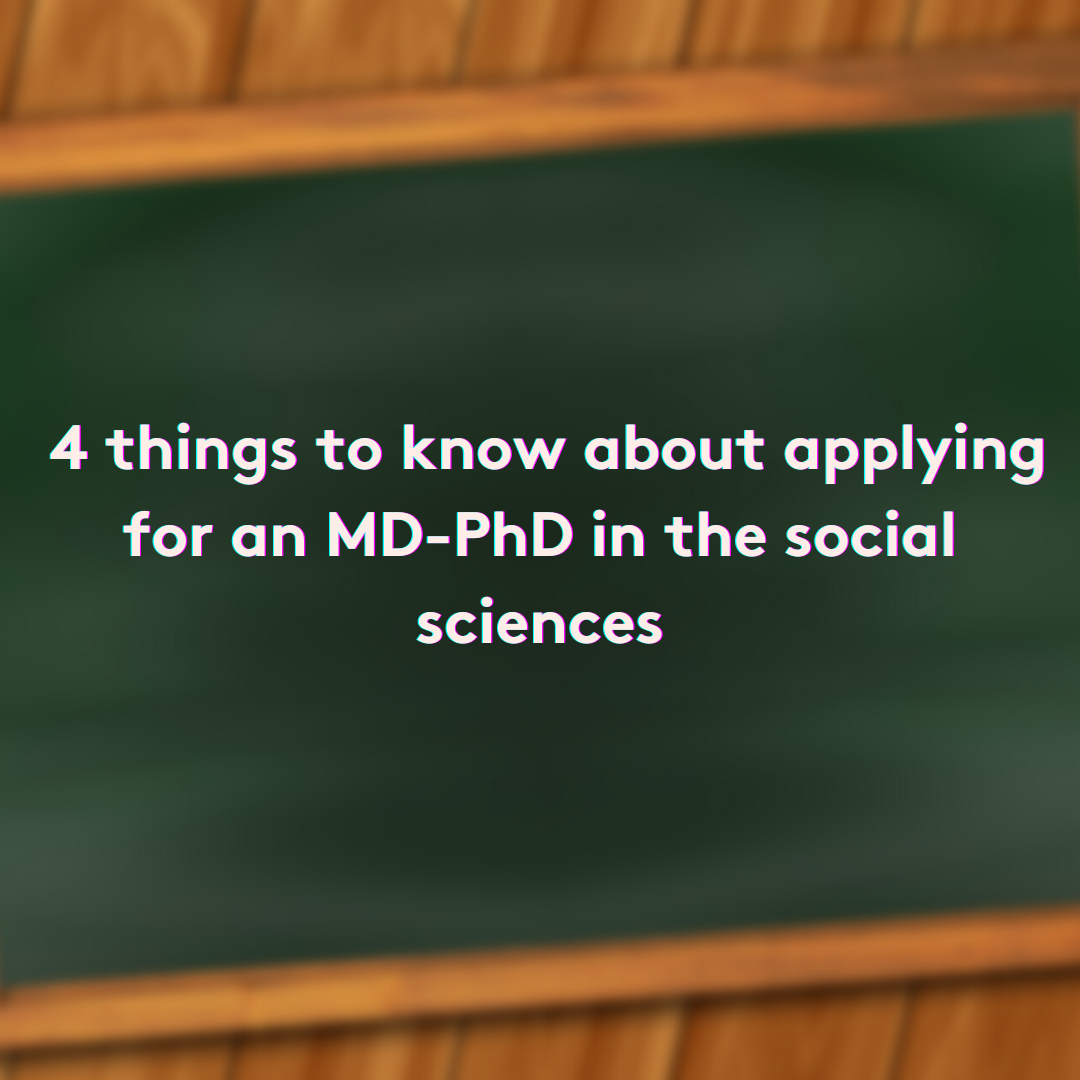 Albert Einstein once said, “The greatest scientists are artists as well.” Many of these great scientists are “non-traditional” MD-PhDs: doctors who pursued their PhD in the social sciences or the humanities instead of the typical life sciences. If you’re interested in taking this road less traveled, start by asking yourself these four questions:
Albert Einstein once said, “The greatest scientists are artists as well.” Many of these great scientists are “non-traditional” MD-PhDs: doctors who pursued their PhD in the social sciences or the humanities instead of the typical life sciences. If you’re interested in taking this road less traveled, start by asking yourself these four questions:
1. Which medical schools accept social sciences MD-PhD students?
More and more medical schools are beginning to appreciate the value of an MD-PhD in anthropology, health policy, or the history of science. However, the majority of American medical schools still do not accept social science MD-PhD students. When making your list of medical schools, make sure that each one offers a social science MD-PhD track. In addition, check if each school allows MD-PhD applicants to re-route their application to “MD-only” in the event that they are not offered admission into the MD-PhD program. This means that you can still gain admission to the MD program even if you are passed over for an MD-PhD.
2. What are my chances of being accepted?
Some medical schools limit the number of spots available to social science MD-PhD applicants. Every medical school is different, and you’ll want to maximize your chances of acceptance. Some medical schools will only consider social science MD-PhD applicants on a case-by-case basis. Others will admit just one or two social science MD-PhD students per year. Finally, some medical schools do not limit the number of social science applicants they’ll admit. Find out where each medical school on your list stands, and make sure that your list includes as many schools as possible that place minimal or no limits on social science MD-PhD applicants.
3. What are my other options?
Find out if the medical schools on your list have an MD-PhD “affiliation” program. This means that they allow MD students to pursue a PhD during their training, even if the student was previously denied admission into the MD-PhD program. By getting involved in research as a medical student, you can often build the mentoring relationships you’ll need to gain your medical school’s support in pursuing a PhD in the social sciences. Alternatively, explore what additional social science research opportunities each medical school has to offer. Are there master’s degree programs available? Many schools allow MD students to pursue an additional year of research in fields like public health and bioethics.
4. Am I ready to stand my ground?
Social science MD-PhD applicants are called “non-traditional” for a reason. They’re few and far between, and they often approach the field of medicine in new and exciting ways. Once you make it to the interview trail, you’ll have an experience unlike any other applicant. Interviewers really want to know why you feel a PhD in the social sciences would be relevant to your future work as a doctor. They’re not trying to trivialize your vision, but sometimes it can feel like you’re being questioned at every turn. Nothing is more important than being able to make your case for the innovative contribution you envision making as a social science MD-PhD.
Use these 4 questions to frame your approach to the MD-PhD admissions process with respect to the social sciences. Social science MD-PhD programs are still relatively uncharted territory, but don’t be afraid of going against the grain. Albert Einstein has one more piece of advice: “It takes a touch of genius - and a lot of courage - to move in the opposite direction.”
Cambridge Coaching has the most qualified team of medical school writing coaches available anywhere. Our team is composed of MD, MD-PhDs, and professional writers because we understand that the best coach is going to help you produce a dazzling AMCAS essay, as well as a suite of supplementary materials that provides a persuasive, integrated argument for why you belong in medical school.
The challenge of the medical school application process isn’t just due to the workload, either. It has to do with the sheer competitiveness of the system. You can’t take anything for granted; every aspect of your application has to be solid - your GPA, your MCAT, your recommendations, your interviews, your activities, and your personal statement. That’s why we go beyond the usual options and offer coaching that covers the entire application, not just your personal statement. While we are happy to work with clients on a single essay or drafts, we find that we achieve the best results with clients who work with us throughout their application process - from the MCAT through to the admissions deadlines.

Comments